- Home
- Amanda Hocking
From the Earth to the Shadows Page 8
From the Earth to the Shadows Read online
Page 8
Valeska nodded, as if that had already occurred to her. “We should try to avoid the cities, then, if we can. The demons of destruction tend to run them, and they would love to get their hands on the Sibudu Key. They’re always looking for any way to break out of here.”
“The demons of destruction?” Oona asked, looking at Valeska as we walked along.
“Yeah, like Abaddon, Vanth, and Nirriti,” Valeska explained, and she pointed up ahead, to where the river was hidden behind a thicket of trees. “The city up ahead around the bend is Tartarus, and when I was here last, it was under the rule of Perses.”
“There’s just like regular cities here?” Oona asked, sounding shocked. “Immortals going about their business?”
Twenty feet away from us, a very human-looking woman was singing to herself in a lovely voice. She crouched on the banks of the water and used a bristled brush to scrub her clothes against a rock. Beside her was a wicker basket filled with her dirty laundry.
None of this was how I had imagined it. Before we’d gotten here, I would’ve been shocked by the idea of cities in the underworld. But now, seeing the woman washing her dirty clothes, it made perfect sense.
They were just living their lives. Or deaths, as it were.
The only real sign that this all wasn’t a normal place on earth—other than the total lack of sky, with the dark umber of dirt entwined with the branches soaring above us—was what lined the path we walked. Near the river, it had been mostly smooth, presumably worn that way by centuries of travelers venturing to the water.
But now we had ventured out farther, giving the immortal residents space. There wasn’t grass, exactly, but there were plants. A few were taller, about knee-high, with burnt-orange leaves and sharp thistles, along with some flowering plants with blood-red blossoms that smelled of death when I grazed them.
Mostly, though, the dirt was blanketed with a ground ivy with deep olive-green leaves and long tendrils that moved out of the way as we walked by. Occasionally I felt them tickling against the backs of my ankles as they reached out after me, attempting to grab me.
Through the plants, sharp white bones jutted out here and there. When I looked closely, I could see that the ground was littered with fragmented bones, fractured skulls, and the odd fang or broken talon. Oona stumbled over some of them, and I caught her arm before she fell.
“Of course,” Valeska replied matter-of-factly to Oona’s question about cities. “They have eternity to build their own civilizations.”
“How do you know so much? Most of what you’ve told us isn’t common knowledge up on earth,” I said.
I’d spent most of my life training and studying to return immortals to Kurnugia, and I hadn’t heard of half the things that Valeska was explaining to me. It was beyond the scope of any course I’d taken at Ravenswood Academy.
“How could it be?” Valeska retorted. “No one comes back up to tell the tale of what they’ve seen. The only things we really know about Kurnugia are what the Vanir gods have told us.”
“So you learned it all from your mom?” Oona asked.
Valeska lowered her gaze, and she was slow to reply. But eventually she said, “She told me some, but not very much. I mostly learned it through trial and error.”
“What do you mean?” Oona asked.
“When I was here before, I was here for a month before I finally found my mom,” Valeska answered, causing Oona to gasp. “Kurnugia is a massive place. I don’t know how vast it is, even. Maybe as big as a continent, maybe as big as the galaxy.”
“How did you survive that long?” Oona asked, echoing my thoughts.
Valeska lifted her head, staring straight before her as we walked, and there was a hardness to her expression. Her jaw was set, and her large eyes had darkened. “I snuck around and hid a lot. Having wings definitely helped me avoid a lot of bad situations.”
“Did you make friends?” Oona asked, sounding hopeful.
“I kept to myself as much as I could,” Valeska answered flatly. “You never know who you can trust down here.”
From the corner of my eye, I saw someone looking at us. I tried to just keep walking, but she was staring at us intensely.
She stood ahead of us, standing between where we walked and the river. I couldn’t tell what she might be, but she appeared to be a beautiful woman in her forties, with long black hair and tawny skin. Her face was slightly long but was not unattractive, and her arms and legs were sinewy. The sari she wore was dirty and faded, but the way it draped across her shoulders had an elegance about it. Around her neck she wore a gold chain with a large locket. It actually reminded me more of a golden bell jar, with an exquisite engraving on it.
“What about her?” I asked Valeska, motioning toward the woman. “Is she a friend of yours?”
Valeska paused and furrowed her brow. “No, I don’t think I’ve ever seen her before in my life.”
“Well, she definitely sees us,” I said, since she’d started walking over to us.
“Is the enchantment wearing off?” Valeska asked.
“No, it shouldn’t be. Not yet.” Oona glanced around. “And no one else seems to be looking at us.”
We’d stopped walking, since this woman was coming straight for us and it might cause more of a scene if we tried to run away. It wasn’t until she got closer that I realized she wasn’t looking at us, or even at Valeska, the way I’d assumed she was.
No, her dark chestnut eyes were locked on me.
“Do I know you?” she asked, sounding as confused as I felt, and my hand hovered above the dagger sheathed at my side.
“I … I really doubt it,” I stammered, unsure of how to respond.
She tilted her head and narrowed her eyes. “There’s something familiar about you. We must’ve met.”
I knew for certain that I hadn’t returned her. I remembered the faces of everyone that I had killed. But I couldn’t say the same about who my mother had killed. No one had ever told me that I looked a lot like Marlow, but there had to be some family resemblance.
And if Marlow had killed this woman, and hers was the last face she’d seen on earth, I imagine that it would be etched in her mind forever. That she could see the similarities I shared with my mother.
“I really don’t think so,” I insisted and started walking, afraid of what this confrontation might uncover.
“Tell me your name, at least,” she persisted, following after me. “Let me put my mind to rest.”
I tried to brush her off, but she was right at my side, and others had begun to look at us. I had to do something. “Malin. My name is Malin.”
“Malin?” she repeated, and then suddenly she was in front of me, blocking my path, and her eyes had taken on a frantic intensity. “Do you know my daughter?”
“Your daughter?” I asked.
“I’m Lyra,” she said, speaking rapidly. “My daughter is Sloane.”
“Sloane?” I asked, barely able to hear my own voice over the sound of my pounding heart.
Sloane Kothari, my classmate who had given me the sólarsteinn. The same sólarsteinn that had once belonged to her mother, an Apsara who had been killed years ago during an attempted uprising against the Valkyries.
For a moment I was frozen, unable to respond. My fingers lingered on my dagger, and I cleared my throat.
“How do you…” I began, then started over. “When you died, I didn’t even know Sloane. How could you possibly know of me?”
“I hear from her in her prayers.” Lyra smiled sadly at me. “She’s mentioned you a lot recently.” Then her smile fell abruptly, and her eyebrows arched in suspicion. “But you … I know what you are, and you shouldn’t be here.”
SEVENTEEN
My mouth had gone dry, and I wanted to take a deep breath to help clear my head of the electric panic that coursed through me, but the air only burned, feeling as if flames were lapping down my throat and into my lungs.
The handle of the dagger felt cool and comforting ag
ainst my skin, but that did little to combat my tension. I glanced around, looking for an out. All around me were immortal creatures—ranging from small peaceful goblins to violent lumbering giants—and the one thing that united them all was that they had been put here by a Valkyrie.
If Lyra decided to out us, there would be nothing I could do. I couldn’t possibly defeat all of them. The only thing I could do was tell Valeska to grab Oona and fly off, leaving the two of them to complete the mission.
I swallowed hard and looked at Lyra, preparing to say just that, but before I could, she put her hand on my arm. The gentleness of her touch startled me. It was almost … comforting.
“We shouldn’t talk here,” Lyra said, lowering her voice as she glanced around. “There are too many prying ears.”
“Do we need to talk at all?” Valeska asked, with an edge to her words that let me know she’d been playing out the same scenario that I had, with dozens of immortals descending upon me and tearing me apart.
“Yes,” Lyra replied firmly. “I have somewhere we can go.”
She let go of my arm and readjusted her sari, then motioned for us to walk on. I looked to Valeska, but she only shook her head grimly. What choice did we have but to do as Lyra asked?
We continued on the way we had been going, following Lyra around the bend past a thicket of trees. Beyond the trees the ground sloped down in a hill before coming to a vast canyon. A bridge extended over it, carved from the same sienna-colored stone that made up the chasm itself.
Across the bridge was a large city carved into the rocky mountain that extended miles above the canyon and bridge. Despite the sheerness of it—it rose at nearly a ninety-degree angle—hundreds of square buildings had been carved into it, with narrow winding paths running between them.
Based on the dozens of immortals going back and forth across the bridge, it appeared to be a bustling city. With all the music and chatter, barking animals, and even clotheslines draped between the homes, it reminded me so much of my neighborhood back in New Edgewater.
“That’s Tartarus,” Lyra said, motioning to the city. “My home is at the bottom, across the Acheron Gorge.”
“We’re going to your house?” I asked.
“It is the best place for us to talk,” she replied simply and kept walking.
Oona leaned in close to me and whispered, “Do you really think this is safe?”
“No,” I said honestly. “But I can’t see what choice we have.”
Lyra led the way across the bridge, while I followed behind a bit more slowly. I wasn’t afraid of heights, but this definitely made me nervous. It was only about ten feet wide, and it had no railing. There was nothing preventing us from tumbling over the side, or any of the beings passing us from pushing us over the side.
I made the mistake of looking over the edge, at the darkness that fell far below us. Through the shadows I saw hints of gray hands and arms reaching out, clawing futilely at the air. Under the murmur of the urban life and the chatter of the population, I could hear the faint sound of wailing echoing off the walls of the canyon.
Once we crossed the bridge, I expected us to head into the city, but Lyra turned sharply. At first I thought she was about to walk off the edge of the cliff and fall down to the grasping clutches of the damned souls below.
But then I realized there was a very narrow path, maybe a foot or two wide, that ran down the sheer wall of the canyon. The walkway was so narrow that Valeska had trouble navigating with her wings, and eventually settled for flying along beside us. From the path, the wailing seemed louder, and the acrid air smelled of death and decay.
Finally Lyra stopped in front of a small door crudely carved into the cliff face, and motioned toward it. “This is my home.”
I went in eagerly, happy to be away from the edge, and entered the quaint little cave home of the Apsara. It was one small room, with a lumpy daybed next to a makeshift wood-burning stove, its small chimney disappearing into the wall. A table sat in the center of the room, with two chairs, but several overstuffed cushions were on the floor, resting on a threadbare rug. On one wall was an antique armoire, with intricate mandala-like designs carved into it.
Once we were all inside, Lyra closed the thick wooden door and bolted it shut. She walked around, lighting a few candles and a stick of incense before closing the shades over the only two windows.
She turned to us, wringing her hands as her eyes darted among the three of us. The dim light from the candles made her skin glow, adding to her ethereal beauty, and I understood exactly how she had been a muse for humans in her life on earth.
“I presume none of you are dead,” Lyra said finally. “So what is it exactly that you are doing here?”
“We’re on a mission,” I answered evasively, but she only raised an eyebrow, waiting for me to explain. “From Odin.”
She let out a joyless laugh. “Of course. Only a Vanir god would be arrogant enough to tamper with the underworld.”
“We’re not trying to tamper with anything,” I insisted. “We only want to make things right.”
“I’m certain you do.” She smiled at me. “But nothing is ever that simple, now, is it?” Her smile filled with pity. “Maybe you’re too young to understand.”
“We understand plenty,” Valeska interjected haughtily.
“Are you all friends of Sloane?” Lyra asked.
“No. Only I am,” I said, then corrected myself. “I mean, we’re sorta friends. I guess. We’re classmates.”
“Is she well?” Lyra asked with a hopefulness that was almost painful to hear. “Is she happy?”
“I think she is,” I said as honestly as I could. “But she’s troubled by the same things that I am.”
“She helped Malin on our quest,” Oona piped in, referring to the sólarsteinn. “She believes that what we’re doing is the right thing.”
“I know. She hopes so, anyway.” Lyra looked at me pensively for a moment, before nodding, as if deciding something. “I suppose that’s settled, then, isn’t it? I will help you. That’s what Sloane would want, and I can do so little for her from here. But I can do this. I can help her friends.”
EIGHTEEN
Oona and I sat across from each other at the table on the wobbly old chairs, while Valeska had taken a cushion on the floor. Lyra was at the armoire, pouring a syrupy pale peach-pink liquid from a crystal decanter. We’d tried to refuse, but Lyra insisted that we drink while we talk.
When she set the brass cups of what appeared to be lassi in front of us, a sweet scent wafted to us—like honey and fresh-cut flowers.
“What is it?” Oona asked, as she admired the liquid swirling in her cup.
“Amritā,” she explained. “Some call it the ‘nectar of the gods.’ It will give you strength and courage for what lies ahead.”
I drank first, while Valeska stared down at her cup as if she expected a monster to leap out and bite off her face. It was almost overly sweet, but not quite. Despite the viscosity, there was a lightness to it, almost reminiscent of cucumber lemonade, but with an earthy undertone, like it had been left to age for a very long time.
“Did Sloane tell you how I died?” Lyra asked as I sipped my beverage.
Already I could feel the liquid coursing through me. It was soft but heady, like the exhilaration right after a first kiss, without all the heart-pounding and butterflies. Just a good, strange intoxication. But unlike alcohol, which muddied my thoughts, this made me feel more clear-headed and alert.
When I breathed in, the air no longer burned my lungs.
“She told me some,” I answered carefully. “An uprising against the Evig Riksdag.”
“Against Valkyries,” Lyra amended. She stood, leaning back against the armoire, with her gaze resting heavily on me. “But I want you to know I never held any hatred toward you or your ilk personally. You were merely the weapons. You were as exploited as the rest of us.”
“I wouldn’t really say I’m exploited,” I argued, but without
as much conviction as I would’ve had a few weeks ago. “I was born a Valkyrie, but I didn’t have to be one. Not if I didn’t want to.”
“I used to think like you,” she said with a bemused smile. “Then everything changed. I went my whole life believing I had a choice, that I had free will. Then one day I realized I was wrong.”
Oona had gulped down her Amritā, and she wiped her mouth with the back of her hand before asking, “What changed?”
Lyra sighed and then began. “I lived for a hundred years before getting married, and then Sloane’s father and I waited another fifty years to have her. As immortals, we were always very conscious about having a mortal child.”
Lyra and her husband were immortals, but they were different species. She was an Apsara, he was a Devi, and while there were many similarities between the two, they were not the same. The child of any mixed parentage—even of two immortals—will be mortal. Since both of Sloane’s parents were divine immortals of different species, she was a mortal Nephilim.
“I didn’t think I’d ever have children after I fell in love with a Devi, knowing that meant that we’d most likely outlive any child we had,” she went on. “But we both had so much love, and we wanted to share it with our own baby.
“So.” Lyra paused, thinking for a moment before continuing. “We had Sloane, and I loved her with all my heart. I still love her with every part of my being.
“When she was still very small, she fell off a changing table. I ran and barely caught her. If I had arrived a moment later, she would’ve fallen to the floor. She could’ve been hurt or even killed. Mortal babies are so fragile, and that’s why I had never wanted to have a child.”
Lyra held her arms out, miming as if she were cradling a baby, and she stared down into them, lost in her memory. “Then, as I held my beautiful baby girl, worrying about all the ways she might be maimed or killed, I realized that I had never wanted her.”
She looked up sharply then, her voice strong. “Don’t mistake that for me saying that I didn’t love her—I do. I did. Always. But I never made a conscious decision to have her.

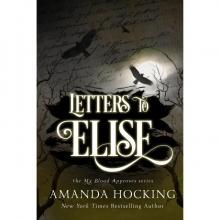 Letters to Elise: A Peter Townsend Novella
Letters to Elise: A Peter Townsend Novella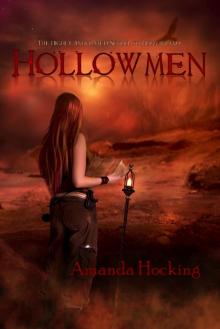 Hollowmen
Hollowmen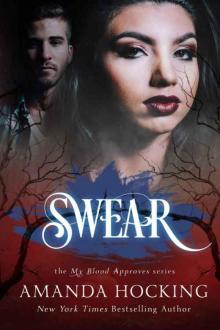 Swear
Swear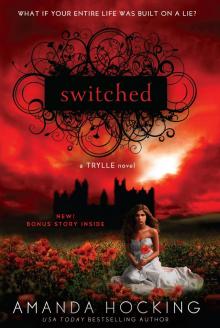 Switched
Switched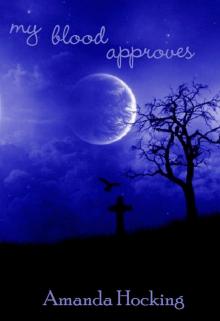 My Blood Approves
My Blood Approves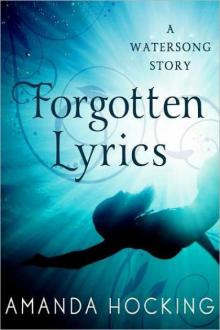 Forgotten Lyrics
Forgotten Lyrics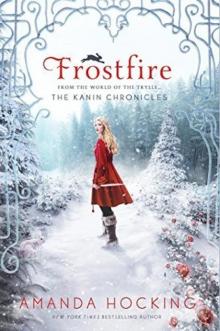 Frostfire
Frostfire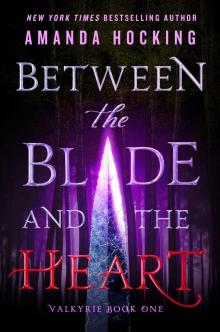 Between the Blade and the Heart
Between the Blade and the Heart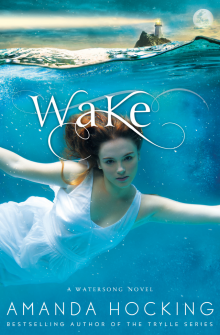 Wake
Wake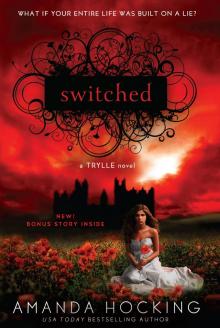 Torn
Torn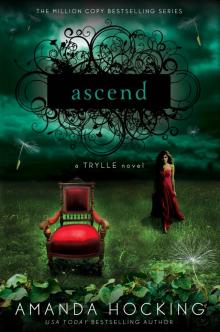 Ascend
Ascend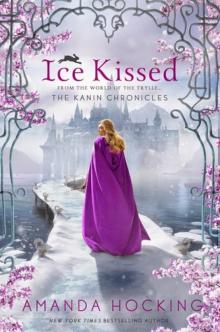 Ice Kissed
Ice Kissed Hollowland
Hollowland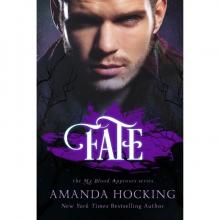 Fate
Fate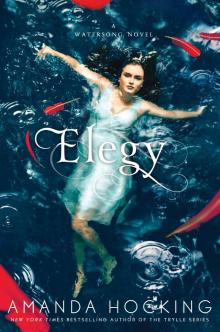 Elegy
Elegy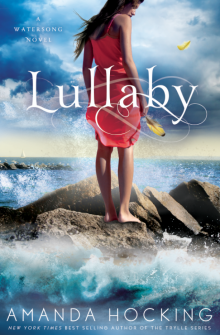 Lullaby
Lullaby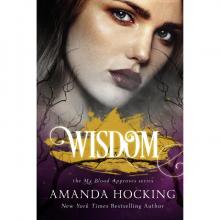 Wisdom
Wisdom Tidal
Tidal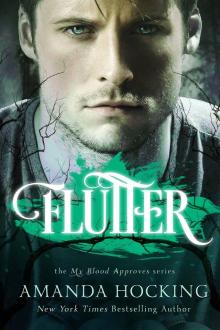 Flutter
Flutter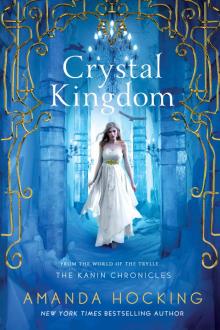 Crystal Kingdom
Crystal Kingdom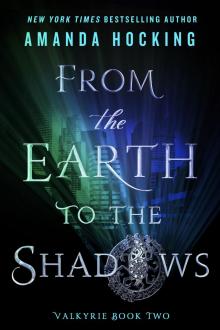 From the Earth to the Shadows
From the Earth to the Shadows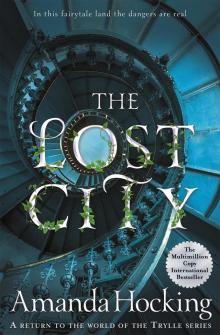 The Lost City
The Lost City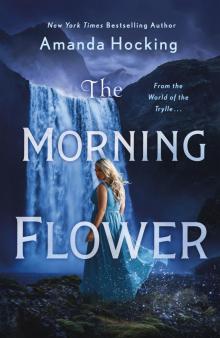 The Morning Flower
The Morning Flower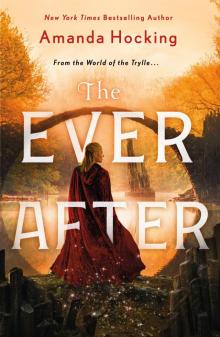 The Ever After
The Ever After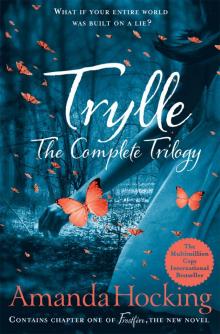 Trylle
Trylle Watersong03 - Tidal
Watersong03 - Tidal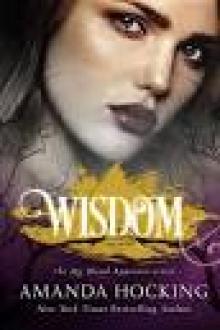 Wisdom (My Blood Approves series)
Wisdom (My Blood Approves series)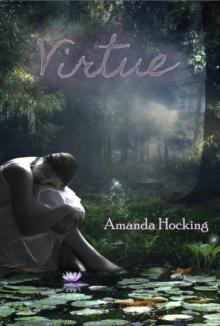 Virtue - a Fairy Tale
Virtue - a Fairy Tale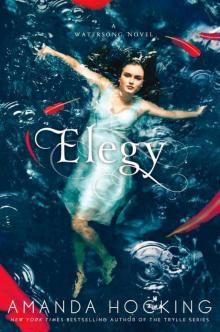 Elegy (Watersong #4)
Elegy (Watersong #4)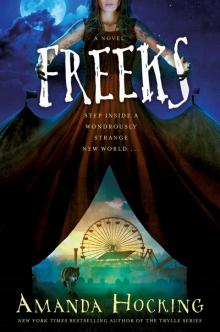 Freeks
Freeks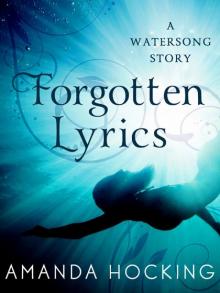 Forgotten Lyrics: A Watersong Story (A Watersong Novel)
Forgotten Lyrics: A Watersong Story (A Watersong Novel)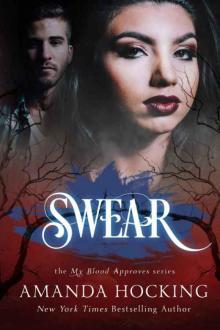 Swear (My Blood Approves #5)
Swear (My Blood Approves #5)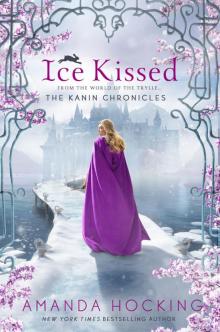 Ice Kissed (The Kanin Chronicles)
Ice Kissed (The Kanin Chronicles)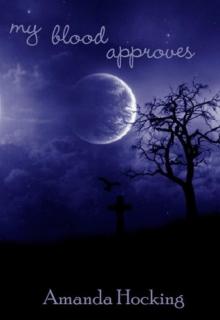 My Blood Approves mba-1
My Blood Approves mba-1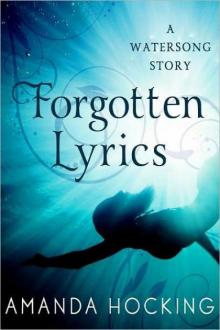 Forgotten Lyrics: A Watersong Story
Forgotten Lyrics: A Watersong Story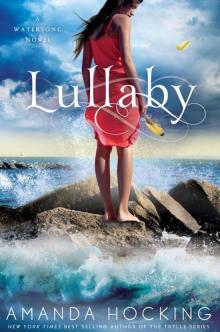 Lullaby (A Watersong Novel)
Lullaby (A Watersong Novel)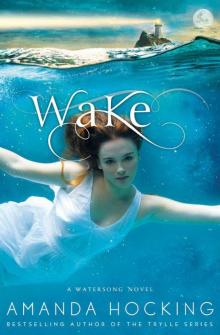 Wake (Watersong Novels)
Wake (Watersong Novels)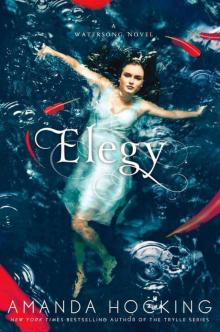 Elegy w-4
Elegy w-4